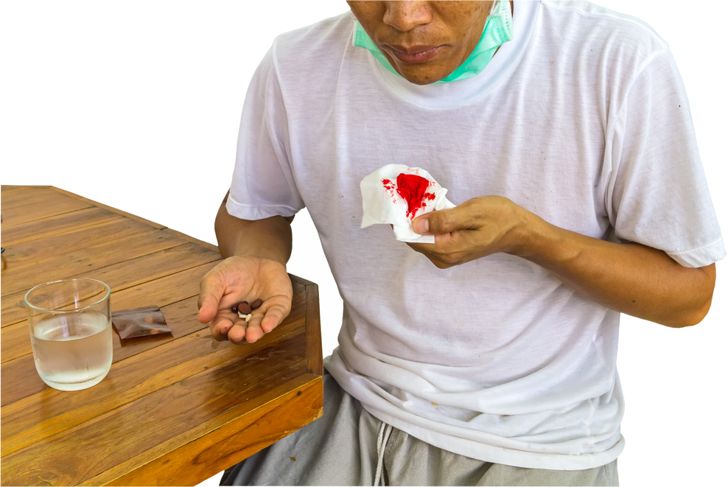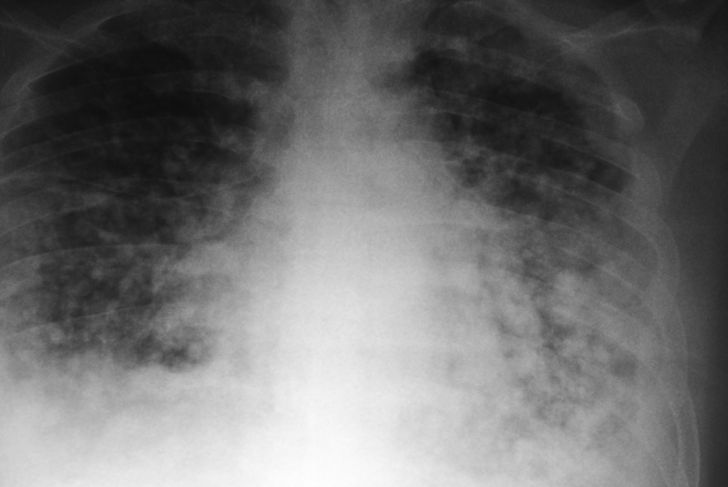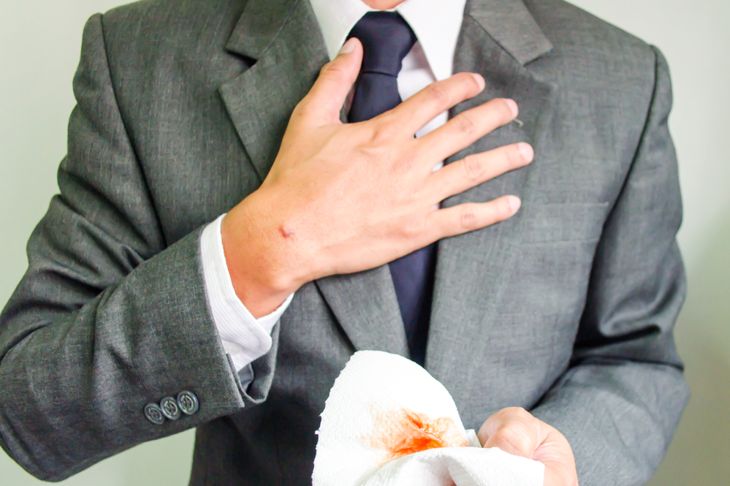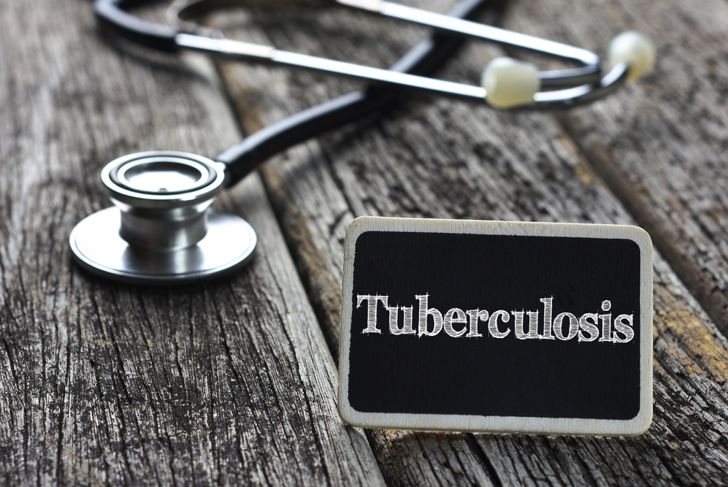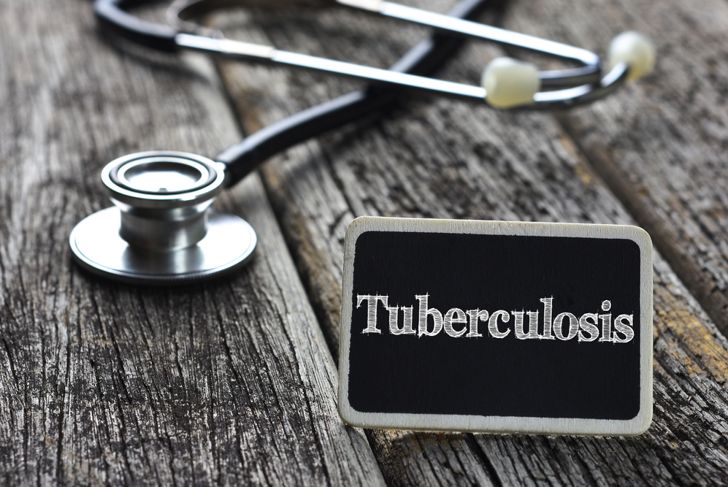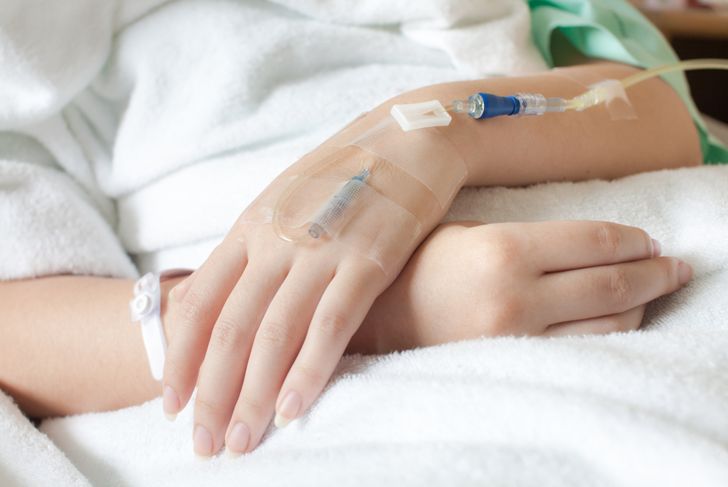The lining of the airways and lungs are fragile and any injury can result in bleeding. Hemoptysis is the medical term for coughing up blood. This happens when the blood vessels in the airways or lungs get weak and rupture. The bleeding can be in small or large amounts and appears in the sputum that is expectorated.In more minor cases conditions, the bleeding may be in very small amounts or even absent from the sputum entirely. However, chronic respiratory diseases can cause severe damage and noticeable bleeding.
What is hemoptysis?
Hemoptysis is a condition when you spit out blood from the lungs or the bronchi when coughing. This condition is of two types. These are as follows:Massive hemoptysisNon-massive hemoptysis.Massive hemoptysis is when you cough up more than 200 ml of blood per day. Patient suffering from non-massive hemoptysis coughs up blood daily ranging between 200-600ml.
What causes the difference in amounts of bleeding?
The respiratory tract has two sources of blood supply. The lungs receive blood from the pulmonary arteries which are under lower pressure. The bronchi receive blood from the bronchial arteries.These are under normal pressure. Therefore, bleeding from the bronchial arteries gives massive bleeding. On the contrary, when your lungs bleed, it contains blood in abundance. It is so because of the low pressure.
How do you differentiate hemoptysis from the other bleeding sources?
Hemoptysis is different from bleeding that originates from the nose, throat, and hematemesis. Hematemesis is when you vomit blood that arises from the upper digestive tract. Other symptoms accompany hemoptysis. These are as follows:A chronic cough Blood patterned sputum Fatigue Chest pain BreathlessnessIn most situations, the exact cause of hemoptysis is not identified. However, the cause gets diagnosed with the symptoms. This is assisted by various tests that are taken by your doctor.
What are the symptoms of hemoptysis?
The mere coughing up of blood should be worrying enough for you to seek medical treatment. But, several symptoms are accompanied by hemoptysis. This will show you the seriousness of the condition. This way you come to know whether it requires urgent medical treatment.The hemoptysis that lasts more than a week or that keeps coming up is alarming. Other alarming symptoms include chest pains, sudden weight loss, night sweats and shortness of breath. When you experience these symptoms, immediately consult your doctor.
What causes hemoptysis?
Several conditions may cause hemoptysis. Listed below are some of the infections that can cause the bleeding:Bronchitis and Pneumonia: This infection affects lungs. The patient suffers from serious diseases.Lung abscess: It is a serious ailment that grows by bacterial infection of the lungs. This may result in the formation of an abscess. You suffer from high fever and face difficulty in breathing.Tuberculosis: It is one of the common causes of hemoptysis. This is a lung infection linked to blood-patterned sputum. It can later develop into massive hemoptysis.Bronchiectasis is a condition when some parts of the bronchi get enlarged. This causes accumulation of mucus in the bronchi. You cough up sputum that gets mixed with blood.Pulmonary infarction is a condition when the blood flow gets blocked by a clot. You experience breathlessness, chest pains, and sputum. It gets streaked with blood.Lung cancer is one of the major causes of hemoptysis condition. Bleeding happens when a tumor gets into a blood vessel.Cardiac conditions that affect the heart such as mitral stenosis. Also, heart failure results in a lot of blood pressure exerted in the lungs. This causes hemoptysis in most of the individuals.
How does the doctor interpret my test results?
The doctor will look at your medical history to determine the amount of blood. She or he will look into the blood sample. Next, they differentiate between various conditions such as hemoptysis, pseudohemoptysis, and hematemesis. A detailed physical examination will give you an accurate diagnosis. In most cases, the children have lower respiratory tract infections. This is a major cause of the hemoptysis in children.The significant causes of hemoptysis in adults are bronchitis, bronchogenic carcinoma, and pneumonia. The doctor will perform a chest radiograph to assist in diagnosis. He or she will also perform two complementary diagnostic tests. On suspecting malignancy, a fibrotic bronchoscopy and high-resolution computed tomography take place. The aim is to stop the bleeding and end it. If you continue to suffer from hemoptysis, a pulmonologist can take over. He or she can assist you to treat the condition.
Will I get hospitalized for a positive diagnosis?
If you have non-massive hemoptysis, the doctor strives hard to stop the bleeding. You get treatment as an outpatient. So, if the doctor determines that you are a low-risk patient with a normal chest radiograph. If the condition persists, a pulmonologist will look into your condition.The massive hemoptysis requires an emergency approach. On suffering from this condition, the patient receives intensive care. The patient must contact a pulmonologist at the earliest. In cases of life-threatening hemoptysis, diagnosis and therapy begin. This condition requires constant observation in the hospital since airway maintenance is important. Most people die from asphyxiation.
How is hemoptysis treated?
The doctor will provide a treatment for hemoptysis. Some of the treatments include medicines that get administered to fight bacterial infections. There will be some drugs to slow or control the bleeding. A saline rinse is done on your nose and throat. This assists to reduce or stop the bleeding.The doctor may do a bronchial artery embolization. This is a procedure that is done to inject drugs into your ruptured blood vessel. It helps to stop the bleeding. In case there is severe bleeding, and other treatments fail, surgery shall be done. It will also help to correct the airway.
What can I do to manage hemoptysis?
There are some medicines that you should take with care. Several drugs can increase your risk of bleeding such as NSAIDs. Consult your doctor if you are using herbal supplements. It might increase the risk as well.Avoid smoking or even visiting places where people smoke. Cigarette smoking can worsen your hemoptysis. Furthermore, smoking can affect your lungs. Seek help from your doctor on how to quit smoking.

 Home
Home Health
Health Diet & Nutrition
Diet & Nutrition Living Well
Living Well More
More